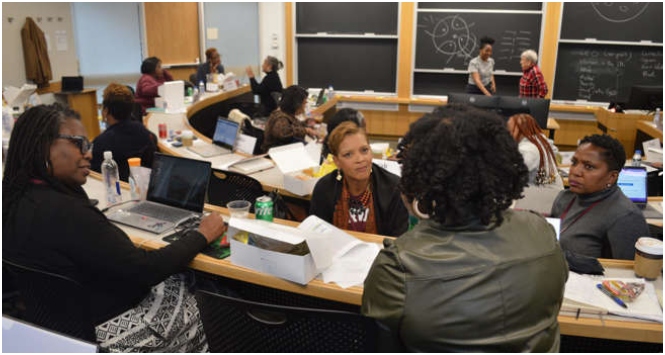In a tech industry that often overlooks them, Black British women entrepreneurs are redefining resilience and community-driven funding in the face of systemic barriers.
With diversity and inclusion (DEI) programs fading and venture capital doors closing, these trailblazers are finding innovative ways to turn adversity into opportunity.
Ayesha Ofori: Defying the Odds

Ayesha Ofori, a former Goldman Sachs executive, epitomizes this struggle. Despite her impeccable credentials—including stints at Morgan Stanley and an MBA from London Business School—Ofori’s investment platform, Propelle, faced rejection after rejection.
“Fundraising is phenomenally difficult,” Ofori told CNBC. “It’s like your gender and the color of your skin is the reason why you’re not progressing as fast as other people.”
Black founders in the U.K. received a mere 0.95% of venture capital investment in 2023, a decline from a peak of 1.13% in 2021, according to Extend Ventures. Ofori’s story is emblematic of the systemic hurdles faced by Black women entrepreneurs, who account for just 13 venture-backed founders between 2019 and 2023, compared to over 3,700 white men.
Systemic Challenges and Creative Solutions
Black women entrepreneurs in Britain face entrenched biases, from racial stereotypes to tokenistic DEI quotas. Some firms pit Black founders against one another, offering a single “seat at the table.”
Sarah Wernér, co-founder of Husmus, shared how her journey involved navigating these hurdles. By leveraging her generic-sounding name and her white husband’s email, Wernér secured meetings with investors who might have otherwise overlooked her.
“It’s ridiculous,” Wernér also told CNBC. “Pitting Black people against each other for one space in your portfolio.”
Despite these challenges, Black women founders are finding allies in their communities. Ofori tapped into her professional network, securing high-profile backers, including former Goldman Sachs partner Stefan Bollinger. Wernér turned to a “friends and family” round, where trusted acquaintances provided initial funding to kickstart her venture.
Community-Driven Ecosystems
Programs like Google for Startups Black Founders Fund and festivals such as Black Tech Fest, founded by Ashleigh Ainsley and Dion McKenzie, have become lifelines for Black entrepreneurs. Ofori credits her $100,000 investment from Google as a “catalyst” that helped attract more investors.
Meanwhile, Colorintech, also founded by Ainsley and McKenzie, is building an ecosystem to support underrepresented entrepreneurs. The program has facilitated over $50 million in funding for minority founders and grown its community to more than 60,000 members.
“We wanted to shine a spotlight and give a platform to folks in the industry who are underrepresented,” McKenzie said.
The Bigger Picture

Four years after the global reckoning on race sparked by the Black Lives Matter movement, DEI efforts have waned, particularly in the U.S. Companies like Google, Walmart, and McDonald’s have scaled back diversity initiatives due to cost-cutting and political pressures.
In contrast, the U.K.’s Labour Party has pledged to address systemic inequities with a Race Equality Act. However, meaningful investment in Black founders remains elusive, with funding levels still far below 1%.
“DEI has become politicized and weaponized,” McKenzie noted. “Ultimately, business leaders must decide whether diversity and equity are essential for value creation and attracting the best talent.”
For Black British women entrepreneurs like Ofori and Wernér, the fight for equity isn’t just about breaking barriers—it’s about creating lasting change.
By leveraging their networks, empowering their communities, and challenging systemic biases, they are laying the groundwork for a more inclusive and innovative tech sector.
This story has been culled from a publication by CNBC.
